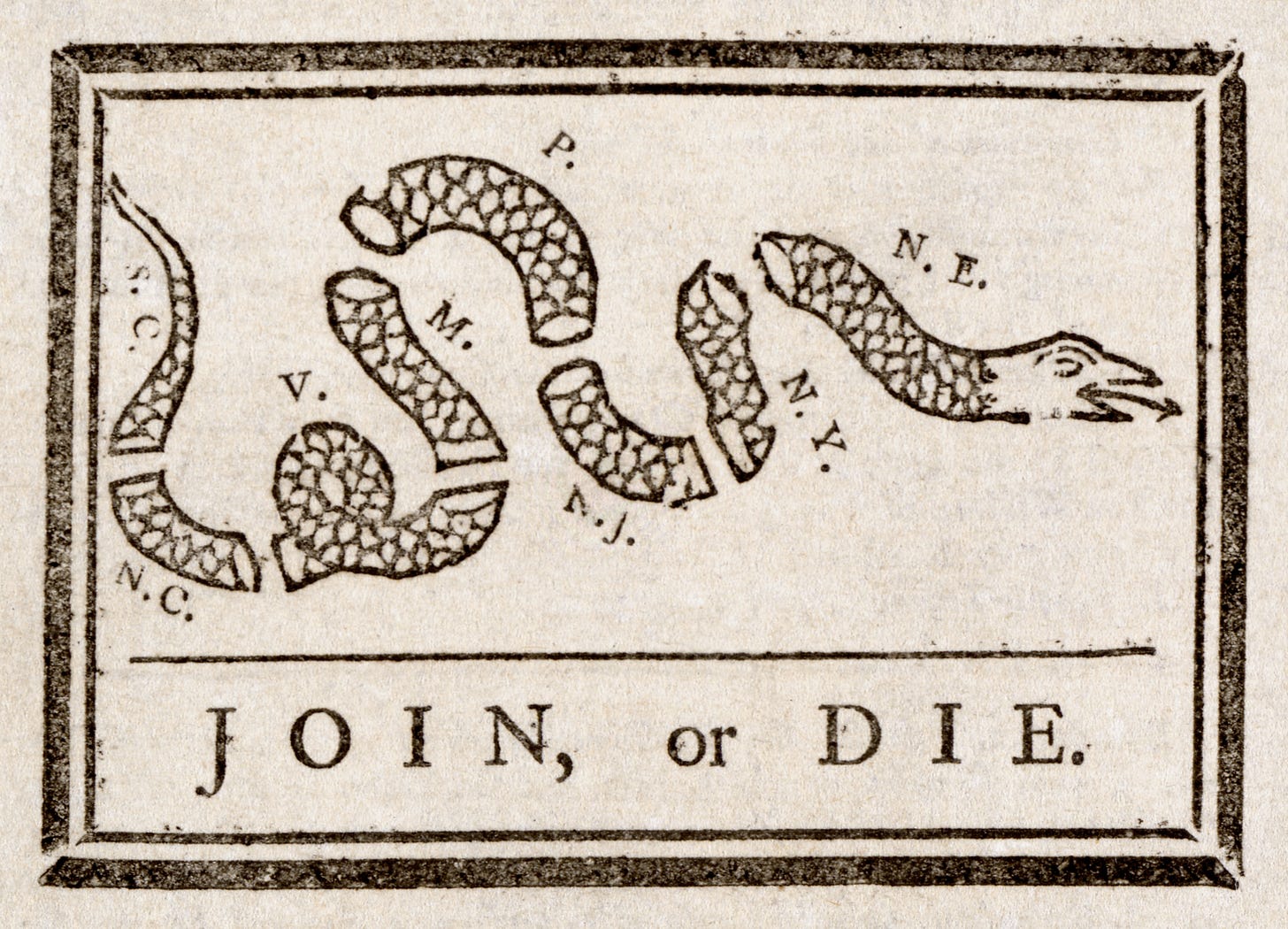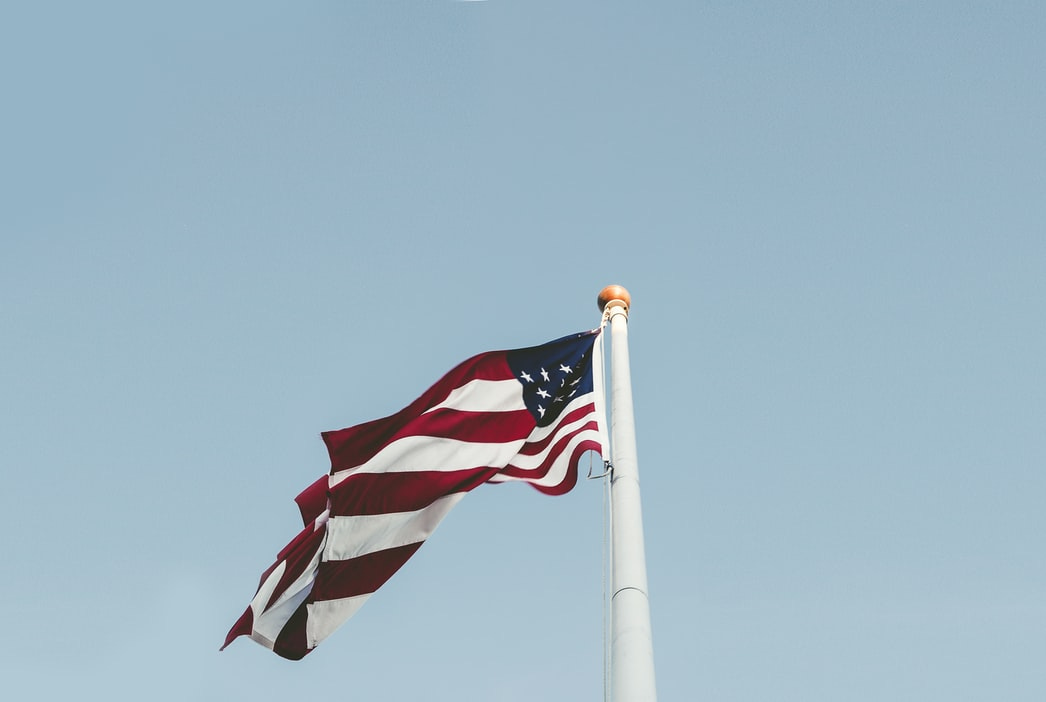The tide of hate and misunderstanding has been rising for a while now.
With each passing year, we've seen the two sides—Democrats and Republicans—distrust each other more. We've seen debate devolve into insult. Families and friendships torn apart by opposing views. Violent protests breaking out with demands for justice.
The common perception is that we Americans are more divided today than we've ever been before.
It sure seems that way. And this week's election, perhaps unsurprisingly, has provided even more evidence to support this.
But is it true?
I'm not so sure.
This country has been divided before. In fact, this country has been so consistently divided throughout its 244-year history that division is much more the de facto state than unity.
The very idea of this country was a controversial one from the start. Colonists were heavily divided on the concept—for many of them, especially wealthy property owners—life was pretty good under British rule. Deciding to fight for independence was messy, took years, and cost lives and reputations along the way.

The real fun started after the Revolutionary War. The states could not have been more divided in their views on what this republic should look like. Nasty, personal battles were fought endlessly on almost every front. How much power should a federal government have? How should each state's voting power be determined? Should this new government have a central bank? A common currency? Every one of these and more were long, drawn-out, dirty, nasty and deeply personal battles that played out in the legislature, in the back rooms of pubs, and via anonymous letters in newspapers strewn with personal insults on everything from the heritage of political rivals to rumors of their sexual exploits.
There was no such thing as Democrats or Republicans at this stage, but the fault lines were already clear. There was division between North and South, and between urban and rural communities—driven by varied philosophies on how to approach everything from taxation to slavery.
It reached a boiling point, of course, when we went to war with ourselves. And despite all of our problems today, it's hard to fathom a country more divided than we were at that pivotal moment.
Unfortunately, the Civil War and the ultimate end of slavery would not be the end of political division in this country.
We had fierce battles over whether to enter WWI or stay safely on the sidelines, an ocean away. We needed to be dragged kicking and screaming into WWII, sitting on the sidelines for years as the isolationists among us battled the interventionists. It wasn't until Hitler had taken nearly all of Europe and Japan attacked us that we begrudgingly got involved. We simply could not come to an agreement among ourselves to do (what was in retrospect) the right thing.
The list goes on. Women's suffrage was a nasty, hard-fought battle. The Civil Rights movement brought us some of the most personally demeaning interactions Americans have ever had with one another. Vietnam tore families apart in more ways than one. Watergate poured fuel on the fire.
Even in modern history, it's easy to forget the deeply personal insults and hatred swirling around the controversy du jour: the Iran-Contra affair, the Monica Lewinsky scandal, and America's blundered post-9/11 quest to find weapons of mass destruction.
Can you remember the tatters that George W. Bush's reputation was in at the end of his second term? It was only twelve years ago, but this man was hated with such fervor that it would have been nearly impossible at the time to imagine him as he's largely known today, the sweet old grandpa sneaking Michelle Obama hard candies at state funerals.
History is a funny thing. It all looks so obvious in retrospect.
We subconsciously assume we would have been on the side of the "winning" team. We would have made the righteous decision at every turn. Of course, we would have supported the American Revolution. Of course, we would have opposed slavery.
Is that right though?
What if we were wealthy landowners whose families and livelihoods depended on the labor of African slaves? Today, through modern eyes, we can see slavery for what it was: a despicable, humiliating, and tragic stain on human history. Would we have seen it so clearly then?
How can we be sure?
The same goes for every one of these controversial battles. I certainly hope I would have fought for voting rights for women and equal rights for Blacks, but is there any way for me to really know?
How strongly would I have felt about entering WWII? Or would the common anti-Semitic views of the time have infected me, too? There's no way to know.
Would I have supported the Vietnam War or the peace movement? Impossible to say.
It's messy this thing we call society. This thing we call democracy. Right and wrong are clear in retrospect but not always in the moment.
I don't mean to minimize our country's problems today—at all.
We've got plenty of them. The political vitriol from both sides is toxic in so many ways. And it's amplified. The insults that once came in weekly newspapers now come in the form of 24-hour news cycles and always-on social media networks.
A lot of people are saying and writing a lot of scary things about where this all could be headed. Economist Paul Krugman thinks we're looking like a failed state. Well-known investor Jeffrey Gundlach says he could see the U.S. breaking up within the next six years. There's even been research showing that we are heading toward civil war.
Much of this seems unlikely or even unfathomable. Fear mongering. And I don’t mean to contribute to it. But could some of this actually happen? Sure it could. Nothing is impossible. All empires fall and eventually the U.S. will fall, too. But “eventually” doesn't have to be today or tomorrow or within our lifetimes—or even within the lifetimes of our great-grandkids.
It would be a shame if it was. It would be more of a shame if we could have done something about it. If we could have seen right and wrong in real-time rather than after the fact.
One option for us is to sit back and hope it gets sorted out. In the grand scheme of things, it usually does.
How? Through the emergence of common enemies (think: war, or at least cold war), common goals (think: the space race), or great leadership.
The problem with each of these is that they are too "macro" for you and me. We don't control them. We're not going to start a war. We're probably not going to inspire the next great cause that the nation gets behind. And most of us would probably become physically ill at the thought of running for political office—so we're out as the next generation of leaders.
So what can we do? What can we control?
To put it simply, we can control ourselves. We can control our words. We can control our actions. We can control our consumption of news, of social media.
We can actively choose to at least not add to the problem through our words and actions and by repeating the most clever quips we hear on TV, but rather doing the harder thing: trying to understand the other side.
It's time to ask ourselves: "Is it possible that I have been wrong about something?"
I know, it sounds like heresy. The concept of humility is a lost one today.
But is it possible? I'm asking myself that question. And it's so hard to answer. Because we've all got such strong opinions that we are so sure of—just like our ancestors, who were so sure of their views at the time.
But could we be wrong? About some of it, at least?
We need to find a bit of humility. Both sides. Democrats and Republicans.
We need to figure out what we agree on. We need to try to understand why the other side feels the way they do. We need to find that common goal—because it must exist.
We need to do this as a country but we need to do it on a personal level even more.
So let's start today. This particular wave of division has been a bad one. But there's no reason it has to be a fatal one.
It's time for the wave of hatred and misunderstanding to recede. We need to make sure it does.
After all, there’s a lot at stake here.
And our children are watching.
Take care of yourself. I’ll be back next week. - Greg
Photo credit: Thomas Kelley @ Unsplash.com







